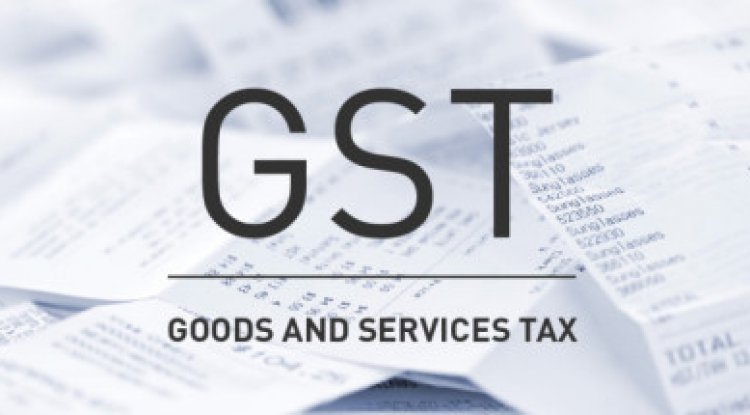

Our designers stay ahead of the curve to provide engaging and user friendly website designs to make.Our designers stay ahead of the curve to provide engaging and user friendly website designs to make.Our designers stay ahead of the curve to provide engaging and user friendly website designs to make.

[ad_1]

Faced with a sharp decline in GST collections due to lockdown and disruptions in economic activities across the country, the government is looking at paying GST compensation to states using a portion of its borrowings and repaying it by collecting cess in the sixth or further subsequent years.
Under the GST law, states are guaranteed full compensation for any revenue loss for the first five years after the introduction of the goods and services tax (GST) in July 2017.
The compensation is a gap between actual revenue collected and projected revenue. The projected revenue is revenue growth of 14 per cent for states per year over the base year 2015-16.
As per the GST Act, full compensation to the states has to be paid for a period of five years till FY22 only through the compensation fund that gets its funds through a levy of GST compensation cess on few items. However, with funds not getting enough collections since August 2019, the GST compensation to states have been delayed with Centre now looking at getting the GST Council nod for extending the levy of compensation cess at least a couple of years beyond the cut-off fifth year to make good the gap in cess collection actual compensation paid to states.
“This (extending the duration of GST compensation cess) has been discussed in the past to ensure states are paid full compensation for any loss of revenue in first five years of the implementation of the new indirect tax regime while the Centre repays its liabilities through cess collections in subsequent years. The GST Council may explore the option again at its next meeting,” government sources privy to the development said.
In case the amount in the GST Compensation Fund fell short of the compensation payable in any bimonthly period, the GST Council shall decide the mode of raising additional resources, including borrowing from the market, which could be repaid by a collection of cess in the sixth year or further subsequent years, sources added.
The situation on GST revenue has worsened in the month of April, with several states indicating a shortfall in collections to the tune of 80-90 per cent of average monthly collections during this time of the year. In fact, Delhi has said its GST collections may end up at a mere ₹300 crores in April against a collection of ₹3,500 crores in the same month previous year. Other states like Tamil Nadu, Assam, West Bengal, Andhra Pradesh also facing severe revenue decline due to shrinking economic activities during the Covid-19 induced lockdown.
With economic activity and GDP growth projected to remain subdued for the most part of FY21, the Centre is looking at all possible means, how it could meet its constitutional obligation of compensating the states for their revenue loss.
After February, when Centre released GST compensation of ₹19,950 crore for the months of October and November 2019, it is only now that the government has released ₹15,340 crore despite insignificant tax collections due to the relief provided for filing of returns and payment of taxes owing to lockdown. This amount includes the second instalment of GST compensation for October and November to states of over ₹14,100 crore leaving compensation dues for December-January period still unpaid.
The monthly compensation requirement for states in 2020-21 is being pegged at ₹20,250 crores, government sources said leaving a big gap between what needs to be paid and what is being collected. Even in FY21, monthly cess collections could be a low of ₹7,000-8,000 crore or lower.
In 2019-20, the Centre had released ₹120,498 crore GST compensation to states while it had collected only about ₹95,000 crores in the form of compensation cess.
According to previous releases of the Finance Ministry, in the FY 2017-18 a total GST compensation cess of ₹62,611 crores was collected, out of which a sum of ₹41,146 crores was released to the States/UTs as GST compensation. After that, in the FY 2018-19, ₹95,081 crores were collected as GST compensation cess out of which ₹69,275 crores was released to the States and UTs as GST compensation. As per the releases of the finance ministry, as of March 31, 2019, an amount of ₹47,271 crore GST compensation cess collected had remained unutilized after the release of GST compensation to the States and UTs in the FYs 2017-18 and 2018-19.
Since the end of August 2019, the Central government has started realising the impending precarious position in paying GST compensation to the States and UTs as the compensation cess requirement was being double the average monthly cess collection.
Sources said that though GST Council also has the option to either bring more items under the cess base by expanding the base of GST cess items or to increase cess rates on the existing items, any increase in compensation cess on few items could only yield about ₹2000-3000 crore a year.
Therefore, Council in its earlier meeting also discussed other options to either forego full cess compensation which was increasing at 14 per cent per annum or to go ahead with whatever compensation is available. One more option looked at was to raise the tax rate on items by rationalisation of rates by shuffling slab rates.
[ad_2]
Source link